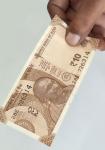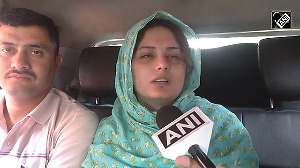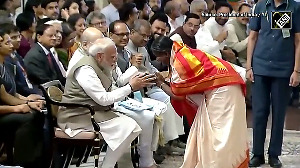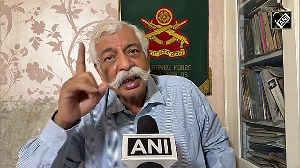A designated Prevention of Terrorism Act court in Ahmedabad on Tuesday convicted 22 people and acquitted an equal number in an ISI-backed terror conspiracy case to avenge post-Godhra communal riots in Gujarat.
In the case filed in 2003, the 44 accused were allegedly involved in jihadi activities in connivance with some elements in Pakistan.
POTA court judge Jyotsana Yagnik sentenced 18 of the 22 accused to 10 years imprisonment, while three got nine years and one three years jail term. Out of the 22 convicted 21 are from the city and one from Mumbai.
The accused have been convicted under section 3(1)(a), 3(3) and 4 of POTA.
Most of the 22 acquitted for want of evidence are from Hyderabad.
The accused had been charged with illegally crossing over to Pakistan for training to unleash terror in order to avenge the 2002 riots. They were also accused of plotting to kill Gujarat leaders including Chief Minister Narendra Modi, besides hatching various terror conspiracies in the state.
Thirty-six other accused, including gangster Dawood Ibrahim, his aide Chhota Shakeel, besides Rasool Party and Mufti Sufiyan Patangia, are absconding.
The prosecution insisted that ISI played a key role in picking up the accused and taking them to Pakistan for arms training to execute terror plans, while defence contested the charge and claimed the accused were illegally detained by city crime branch much before their arrest was shown on record.
They alleged that police had planted weapons to show recovery from the accused and the prosecution had nothing to show against the accused except for their confessional statements, which they retracted before the special court.
Out of the 22 convicted, seven are already undergoing prison sentence in other POTA cases. The accused have also been convicted under the Arms Act as a number of weapons were recovered from them.
The court examined 202 witnesses and over 2,400 documentary evidences during the trial.
Defence advocate Illiyas Pathan said they would move a higher court against the POTA court judgment. "We would examine the over 850-page judgment and then go for an appeal in the higher court," Pathan told media persons.
The case was filed in 2003 by the city crime branch against over 60 people for terrorist activities and hatching a larger conspiracy to seek revenge for the 2002 riots whose victims overwhelmingly belonged to the minority community.
Though the trial commenced against 56 people in a special POTA court, two accused Mohammed Abdul Rauf and Asghar Ali, convicted in the Haren Pandya murder case, were discharged for want of evidence.
POTA charges against 10 others were dropped after the Gujarat High Court upheld the POTA Review Committee's recommendations and ordered their separate trial. Trial finally began against 44 accused over six years before special judges Sonia Gokani, N A Acharya and Jyotsnaben Yagnik.
During the trial the prosecution relied mainly on confessional statements of the accused recorded under provisions of Section 32 of POTA.
The recovery of firearms and witnesses' statements recorded under section 164 of CrPC also formed the basis of prosecution's arguments.






 © 2025
© 2025